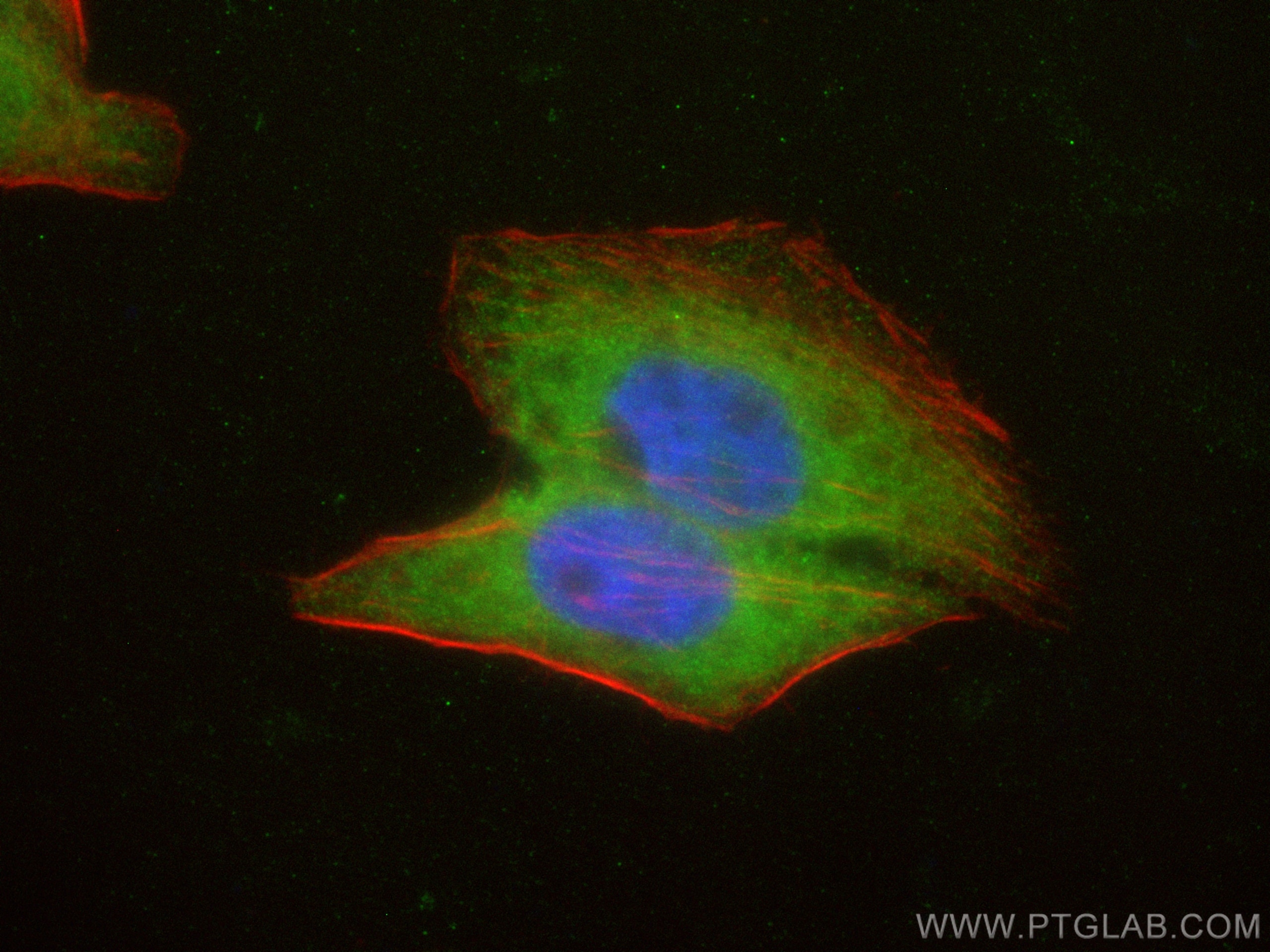Validation Data Gallery
Tested Applications
| Positive IF/ICC detected in | HepG2 cells |
Recommended dilution
| Application | Dilution |
|---|---|
| Immunofluorescence (IF)/ICC | IF/ICC : 1:50-1:500 |
| It is recommended that this reagent should be titrated in each testing system to obtain optimal results. | |
| Sample-dependent, Check data in validation data gallery. | |
Product Information
CL488-19743 targets SLK in IF/ICC applications and shows reactivity with human samples.
| Tested Reactivity | human |
| Host / Isotype | Rabbit / IgG |
| Class | Polyclonal |
| Type | Antibody |
| Immunogen | Peptide 相同性解析による交差性が予測される生物種 |
| Full Name | STE20-like kinase (yeast) |
| Calculated molecular weight | 143 kDa |
| Observed molecular weight | 143-160 kDa, 210-220 kDa |
| GenBank accession number | NM_014720 |
| Gene Symbol | SLK |
| Gene ID (NCBI) | 9748 |
| RRID | AB_3672708 |
| Conjugate | CoraLite® Plus 488 Fluorescent Dye |
| Excitation/Emission maxima wavelengths | 493 nm / 522 nm |
| Form | Liquid |
| Purification Method | Antigen affinity purification |
| UNIPROT ID | Q9H2G2 |
| Storage Buffer | PBS with 50% glycerol, 0.05% Proclin300, 0.5% BSA , pH 7.3 |
| Storage Conditions | Store at -20°C. Avoid exposure to light. Stable for one year after shipment. Aliquoting is unnecessary for -20oC storage. |
Background Information
SLK, also named as KIAA0204 and STK2, belongs to the protein kinase superfamily, STE Ser/Thr protein kinase family and STE20 subfamily. SLK plays an important role in cell proliferation and cytoskeletal remodeling. In fibroblasts, SLK has been shown to respond to FAK/Src signaling and regulate focal adhesion turnover through Paxillin phosphorylation. Full-length SLK (~220 kDa) has also been shown to be essential for embryonic development. In myoblasts, the overexpression of a dominant negative SLK is sufficient to block myoblast fusion. (PMID: 28153048, PMID: 25882817, PMID: 23815977)
Protocols
| Product Specific Protocols | |
|---|---|
| IF protocol for CL Plus 488 SLK antibody CL488-19743 | Download protocol |
| Standard Protocols | |
|---|---|
| Click here to view our Standard Protocols |
